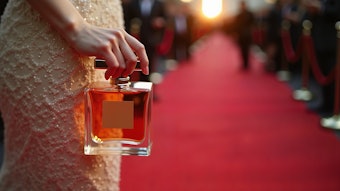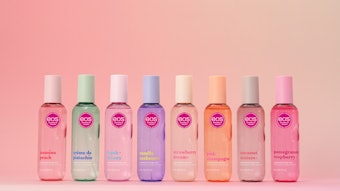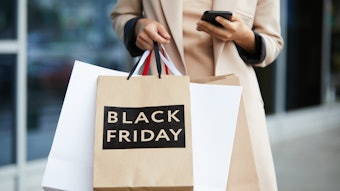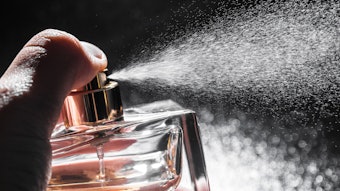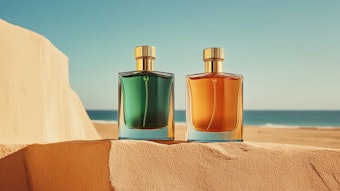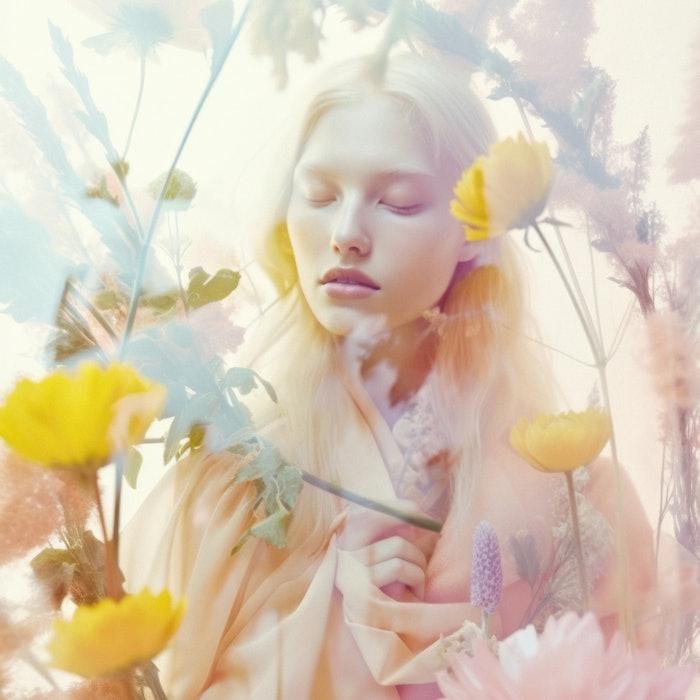
Generation Alpha and Gen Z shoppers love fragrance, but in ways that distinguish them from previous generations of shoppers. For these buyers, mood is everything.
Understanding Gen Z and Gen Alpha Fragrance Buyers
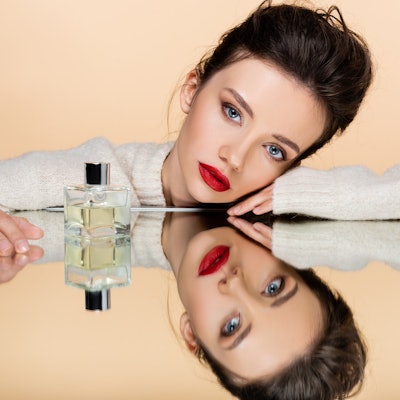 Increasingly, fragrances serve as accessories to wearers' moods.LIGHTFIELD STUDIOS at Adobe Stock
Increasingly, fragrances serve as accessories to wearers' moods.LIGHTFIELD STUDIOS at Adobe Stock
The focus on mood should be unsurprising to those who have followed the emotional well-being of Gen Z consumers.
According to pre-pandemic American Psychiatric Association datab, 91% of Gen Z survey participants had “experienced at least one physical or emotional symptom because of stress, such as feeling depressed or sad (58%) or lacking interest, motivation or energy (55%).
Because younger consumers are mood-focused when it comes to scent, their shopping patterns have shifted.
A September 2023 report from DTC commerce specialist ESW notedc, “Unlike previous generations, who often wore a signature scent consistently, Gen Z is more likely to choose fragrances based on how they feel on a particular day. This has led to a surge in demand for smaller, more affordable fragrances that can be easily mixed and matched to express different moods and emotions.”
For these reasons and more, Gen Z is leading the recent increase in fragrance usage among U.S. consumers, per a 2023 reportd from Circana. In fact, in the last year Gen Z fragrance usage increased 5% to 83%. Many users aged 13-16 wear scents at least three times a weeke, dwarfing the engagement of millennials.
In addition, Gen Z shoppers are also most likely to buy a scent for themselves several times a year, compared to other age cohorts, though all generations seek to treat themselves to fragrances.
Younger Shoppers Lean into Prestige Fragrance
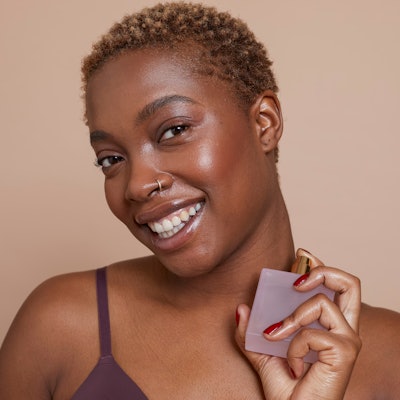 Top growth prestige categories identified by the firm included higher fragrance concentrations such as eau de parfums and parfums, which gained three share points in 2023.Cultura Creative at Adobe Stock
Top growth prestige categories identified by the firm included higher fragrance concentrations such as eau de parfums and parfums, which gained three share points in 2023.Cultura Creative at Adobe Stock
At the product level, NielsenIQ data revealed that top prestige sellers included eau de parfums and fragrance juice sets, signaling an emphasis on value.
Circana data echoes these findings. Top growth prestige categories identified by the firm included higher fragrance concentrations such as eau de parfums and parfums, which gained three share points in 2023.
The pattern is undeniable.
A March 2024 research note from Circana fragrance category analyst Jacquelyn Wenskus noted, “Designer and artisanal fragrance brands account for over 80% of the sales revenue within the U.S. prestige fragrance market and boasted double-digit growth rates in 2023 … Similarly, 7-in-10 fragrance consumers are willing to pay more for higher concentrations, which are stronger, longer lasting and higher priced.”
Value Boosting Fragrance Dupes, Private Label, Body Sprays & More
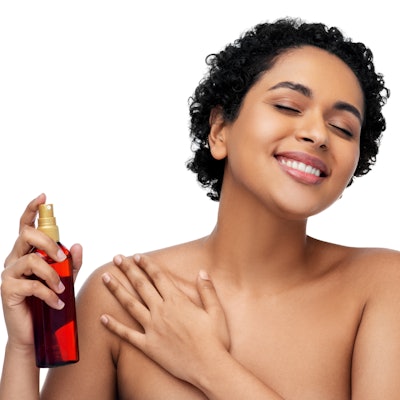 The size of the body spray market recently nearly tripled.Syda Productions at Adobe Stock
The size of the body spray market recently nearly tripled.Syda Productions at Adobe Stock
Per Circana, gift sets were the fastest-growing segment of the fragrance market overall in 2023.
At the same time, unit sales for mini women’s fragrances (less than 1 ox) grew at five times the rate of other sizes in 2023.
Simultaneously, the size of the body spray market nearly tripled.
“Although consumers are trading up to pricier fragrance products, they are simultaneously spending more on lower-priced alternatives sold in prestige retailers that offer similar benefits,” Wenskus noted in her report. “This polarization is evident in the growth of prestige body sprays … The average price of body spray is under $25, which is a fraction of the cost of a traditional fragrance bottle.”
Wenskus added that a focus on value drove 94% growth in private label mass brand sales in scent, as well as a boom in fragrance dupes.
Despite shoppers’ focus on value, only 23% of fragrance purchasers are influenced by discounts, per Circana. And nearly 80% are willing to pay more for a scent they like and about the same portion will pay a premium for mood-boosting scents.
Sensing a pattern?
Fragrance Engagement is High
Growth is likely to continue. Spateg data shows that fragrance is the fastest growing beauty category in terms of online search volume, jumping 34% year-over-year.
At the same time, escalating engagement with the category has boosted “perfume Tok” views on TikTok to 7.8 billion views.
This latter statistic are particularly notable because TikTok is the second-most popular platform for fragrance content across all shopper demographics, though driven primarily by Gen Z and millennials. Men in particular are increasingly influenced by the platform.
In a 2023 report, Circana’s Jensen noted, “For success, fragrance brands and manufacturers must capture the hearts and wallets of Gen Z and millennials, who are the most important generations when it comes to use and interest in the category. Since the peak pandemic period, the fragrance market continues to bask in the sweet smell of sales success because of its highly personal and emotive nature.”
Emotion-forward Fragrance
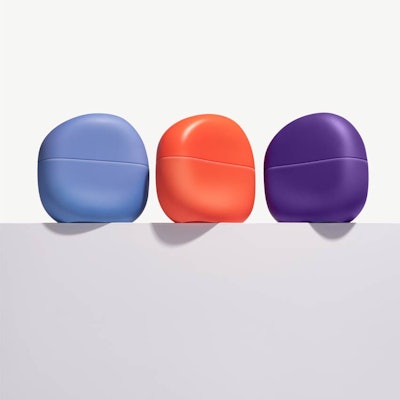 Addison Rae’s 2021 AF Collection of alcohol-free, water-based fragrance featured mood-enhancing scent notes designed to trigger an emotional reaction.Addison Rae Fragrances
Addison Rae’s 2021 AF Collection of alcohol-free, water-based fragrance featured mood-enhancing scent notes designed to trigger an emotional reaction.Addison Rae Fragrances
Happy AF was designed to be a daily dose of euphoric joy for all-day positive vibes, featuring a fruity floral scent with notes of pink lychee, red grapefruit, peony, violet leaves, agave nectar, rose and crystallized musk.
The energizing Hyped AF, meanwhile, featured a citrus musk scent with notes of mandarin, blood orange, pomelo, nectarine blossom, white woods and clean musk.
Finally, the calming Chill AF features notes of pear blossom, apple, red lemongrass, chamomile tea, lily of the valley, sandalwood and milky musk.
Notably, the brand was launched to be shoppable on TikTok.
More recently, in March 2024, wellness brand Brown Girl Jane, which pivoted to fragrance in April 2023, launched into Sephora. The brand—the first Black-woman-owned scent label at the retailer—describes itself as “functional fine fragrance” and is designed to “promote distinct mood responses.
Moodeaux, another Black-owned brand, has also made a splash with genderless emotion-forward fragrances. The brand is designed to help consumers “accessorize” their moods.
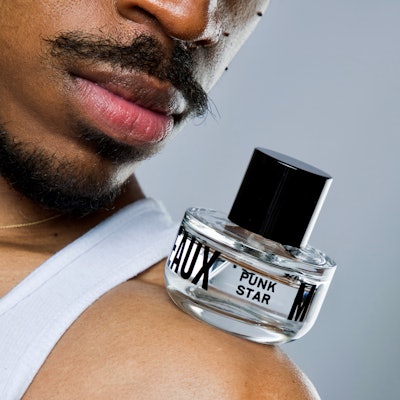 Moodeaux has made a splash with genderless emotion-forward fragrances. The brand is designed to help consumers “accessorize” their moods.Moodeaux
Moodeaux has made a splash with genderless emotion-forward fragrances. The brand is designed to help consumers “accessorize” their moods.Moodeaux
“PunkStar channels big ‘main character energy’ while carrying out our mission to empower scent-crazed beauty fanatics as they accessorize their mood and practice the best form of self-care: self-expression,” Arps noted.
At the supplier level, Givaudan’s MoodScentz platform, first announced in 2020, was launched to guide perfumers and creative teams in crafting mood-enhancing fragrances to evoke positive emotions.
Driven by neuroscience principles, the platform comprises a set of fragrance creation guidelines based on combinations of ingredients with targeted mood benefits such as happiness, invigoration or relaxation.
In this way the platform helps fragrance designers better understand the underlying mechanisms that take place in the human brain in the presence of odors, per Givaudan.
Two years after its launch, Givaudan MoodScentz+, which was designed to a new neurobiology measurement capability to the platform based on data mining. The upgraded platform was designed to offer perfumers and oral care flavorists the ability to combine ingredients with specific scientific and consumer-proven mood benefits to create compositions that positively enhance emotions.
MoodScentz+ covered a range of positive moods, including “Relax & Unwind,” “Invigorate & Recharge” and “Happy & Blissful.”
Just as Givaudan pushed mood-focused compositions into oral care, Soft & Dri has also pushed emotion-forward sensory compositions into a functional category: deodorant.
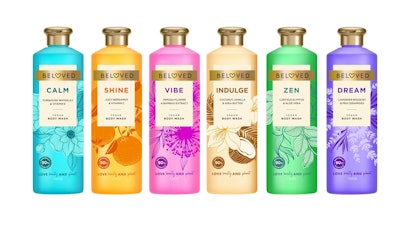 Mood was front and center in Love Beauty and Planet’s new range of vegan body washes, featuring “mood-transforming scents” that were reportedly “biometrically tested through a brain-mapping technology that matches each fragrance with lifestyle activities in a similar mood space,” per the brand.Love Beauty and Planet
Mood was front and center in Love Beauty and Planet’s new range of vegan body washes, featuring “mood-transforming scents” that were reportedly “biometrically tested through a brain-mapping technology that matches each fragrance with lifestyle activities in a similar mood space,” per the brand.Love Beauty and Planet
Its Zen Cucumber fragrance pairs cucumber notes with those of orange, melon, musk and amber for a calming experience. Meanwhile, the brand’s classic Sparkling Citrus scent was revived with floral notes, musk and cedarwood to inspire a bright, happy mood.
Mood was also front and center in Love Beauty and Planet’s new range of vegan body washes, featuring “mood-transforming scents” that were reportedly “biometrically tested through a brain-mapping technology that matches each fragrance with lifestyle activities in a similar mood space,” per the brand.
The range’s scents included Vibe, featuring notes of mimosa flower, rose and jasmine, rhubarb, and blackcurrant, which are intended to evoke the experience of hearing one’s favorite song. The self-explanatory Calm, meanwhile, features notes of water lily and eucalyptus, while the nature-evoking Zen features notes of eucalyptus and mint, jasmine water, and sage.
“With the introduction of our new vegan body washes, your shower can be a mood-transforming experience,” said Greg Ross, chief operating officer of Unilever Personal Care, North America. “We're bringing the power of baths to the shower so everyone can feel like their best selves regardless of time or space.”
As these launches show, mood- and emotion-centric scent design is category-agnostic. Brands will be best served by getting in their feelings.
FOOTNOTES
ahttps://nationalpost.com/feature/gen-zs-love-luxury-perfume-in-bad-times
bwww.apa.org/monitor/2019/01/gen-z
chttps://esw.com/blog/how-gen-z-is-disrupting-the-fragrance-sector
dwww.circana.com/intelligence/category/press-releases/
ewww.gcimagazine.com/consumers-markets/news/22874399/gen-z-is-the-key-to-fragrance-growth
